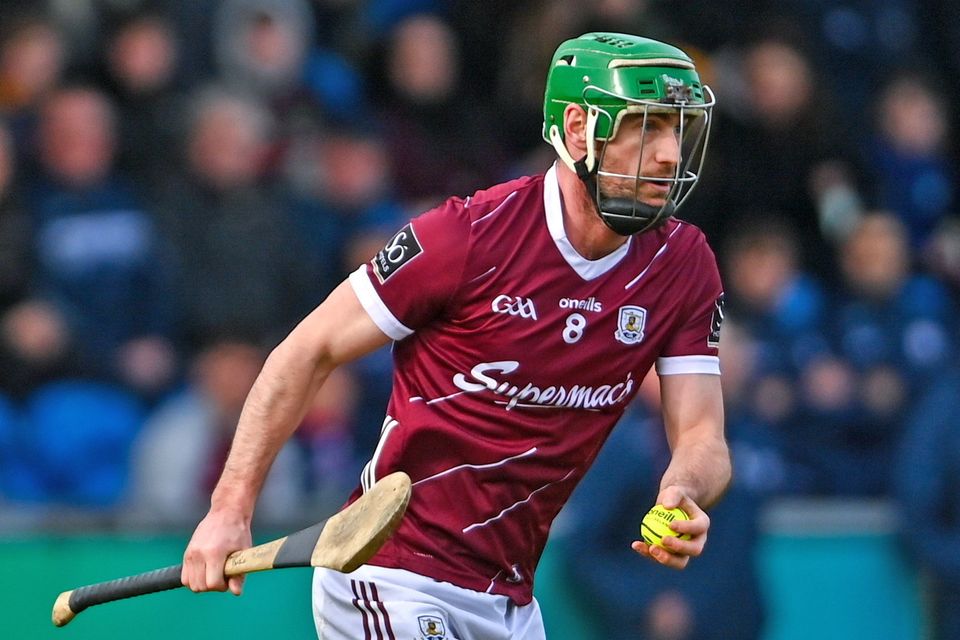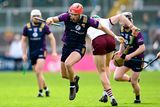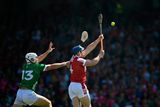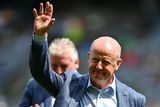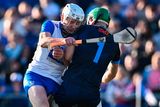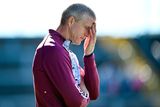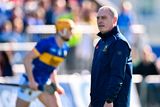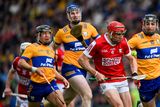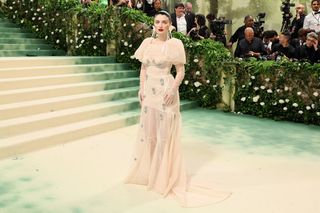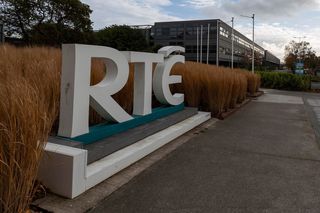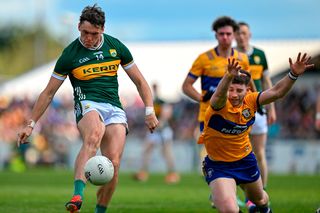Tribe’s tried-and-trusted ‘decade men’ still hold key for Henry Shefflin
Career longevity: David Burke of Galway during the league tie against Antrim at Corrigan Park in Belfast. Photo by Tyler Miller/Sportsfile
As Henry Shefflin stood in the interview room beneath the Hogan Stand in Croke Park and retraced the steps of his Galway team’s fade-out in the second half of their All-Ireland semi-final against Limerick last July, he paused and changed direction ever so slightly.
“It just feels that the year wasn’t good,” he said, painting a more outsized picture than the narrow canvas their brushes had dabbed in the hours before he spoke.
In his tone there was acceptance that Galway had stagnated from year-to-year, with reference to the inconsistency that has plagued them for so long amplifying his frustration. Shefflin had put a lot into the Galway project over the previous years but had come up short.
Was he at the end of the line now with a team more distant from the champions than they had been 12 months earlier?
By early August there was a clear indication that sleeves were being rolled up tighter. He would see out his third year and by September the option of a fourth year, taking him to the end of 2025, was agreed.
Plans to add Eamon O’Shea, the former Tipperary manager and All-Ireland-winning coach, to the backroom were in gestation by then too.
O’Shea lives within sight of Pearse Stadium and has been coveted by Galway for involvement in their county set-up for some time.
Read more
Whatever about his clear frustration in July, Shefflin was willing to meet whatever challenge was coming at him head-on. And if that meant a fresh set of eyes as experienced as O’Shea’s, the most decorated player in the game was willing to facilitate that too.
Johnny O’Connor, the former Connacht rugby player, came in as strength and conditioning lead, to add further freshness. But the pace of personnel change on the field has not been the same.
This is Galway/Kilkenny week and Shefflin’s latest joust with the ‘old country’ barely registers. At this stage it’s scarcely a sideshow given that they’ve been his most common opponents over the last two years.
The acclimatisation period for being in a dressing room that’s not Kilkenny’s has long since passed. Sunday will be a fifth meeting in three years and there’s the probability of a sixth on the second weekend in June.
That Saturday evening has a red ring around it, not just for Shefflin but for this Galway team. A Leinster title is the baseline target for them. Anything short of it and it’s hard to see a path forward.
Of course there’s a journey to be travelled before then to get to Croke Park but there’s little to suggest that the first provincial hurling final of the year won’t be contested by the same teams again for the third successive year.
And in Galway’s case, it will most likely be the same team. Or something very close to it.
They may have fallen well short of Limerick’s standard in the second half of last year’s All-Ireland final but in trying to bridge that gap, they’re reverting to many familiar faces.
Of all the inter-county teams in pursuit of the Liam MacCarthy Cup none have the career longevity of Galway’s core group.
Dependency still falls to many of the players that came through during Anthony Cunningham’s four years between 2012 and 2015.
Johnny Glynn’s return to the squad in recent weeks brings to 10 the number of current players who are now into a 10th year or more playing at inter-county level.
David Burke’s origins trace back to 2010, Glynn, Conor and Joseph Cooney stepped up in 2012, it was 2014 for Dáithí Burke, Gearóid McInerney, Cathal Mannion and Jason Flynn, while Pádraic Mannion and Conor Whelan launched in 2015. Adrian Tuohey made his championship bow in 2016.
By comparison, Kilkenny’s number of ‘decade men’ is half that – Eoin Murphy, Cillian Buckley, Conor Fogarty, TJ Reid and Walter Walsh. Only Clare and Wexford, with eight each, come as close.
Galway have not got a rich bounty from the four minor teams that won successive All-Irelands between 2017 and 2020.
The translation to U-20 and then senior has been poor but then successful minor teams are never an accurate guide to a better future.
From the 2017 team, Darach Fahy looks like he has now positioned himself as first-choice goalkeeper, displacing Éanna Murphy, while Darren Morrissey and Ronan Glennon have been regulars in recent years.
The 2018 team, the first to win the U-17 minor competition, had Donal O’Shea, now putting down firmer roots, while Gavin Lee, who has also moved up the pecking order this year, and John Cooney came from the 2019 team. Lee was also part of the 2020 team, as was Tiernan Killeen, part of the 26-man squad for last weekend’s Leinster SHC opener against Carlow and for whom there have been high hopes.
But some of those All-Ireland-winning minor teams’ best prospects have not pushed on, a common symptom of that development pathway between U-17 and senior, not just exclusive to Galway. And for players on the later teams, 2019 and 2020, there is still time to make that leap.
For now, though, Galway must hold what they have and hope that new voices can breathe necessary new life.
